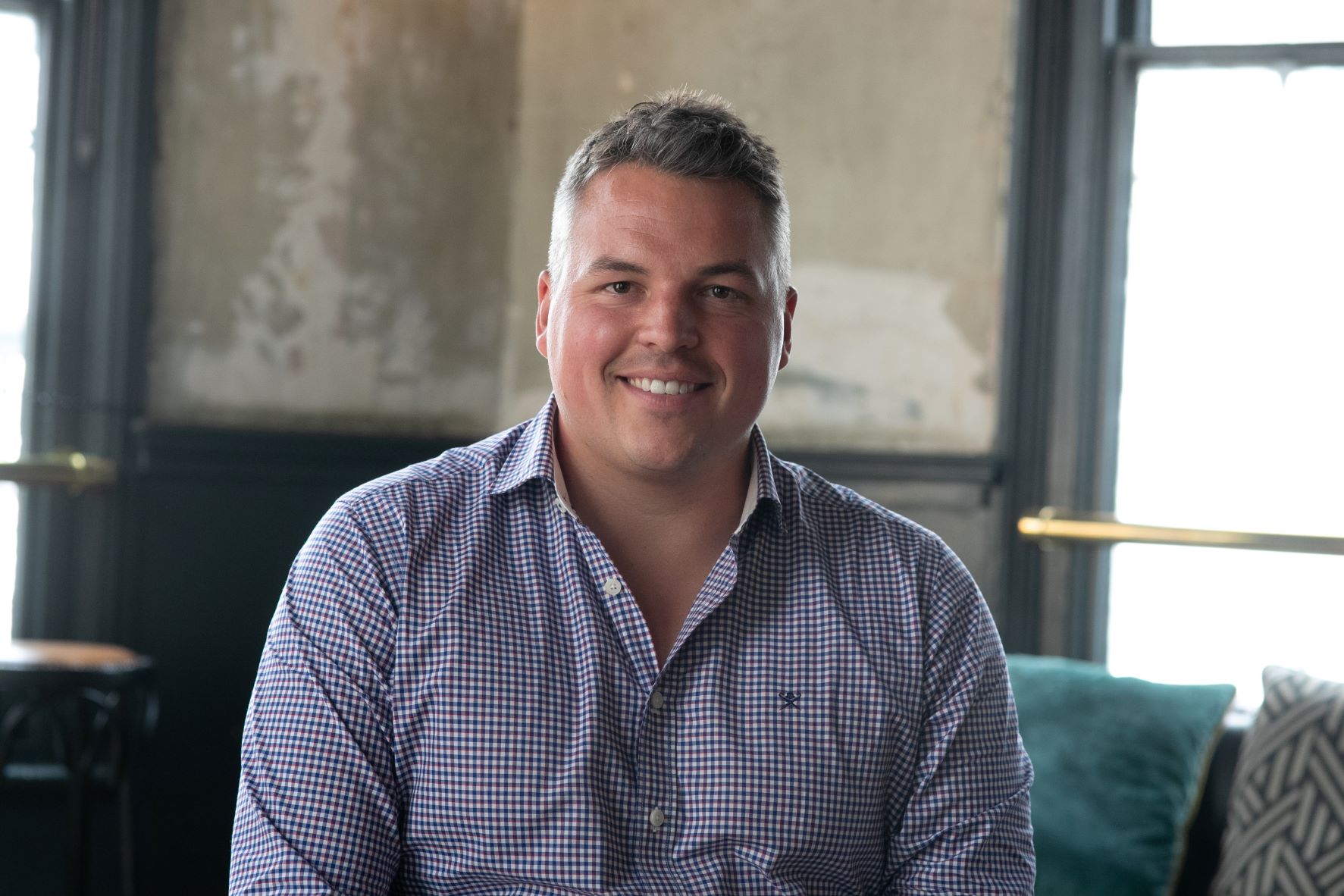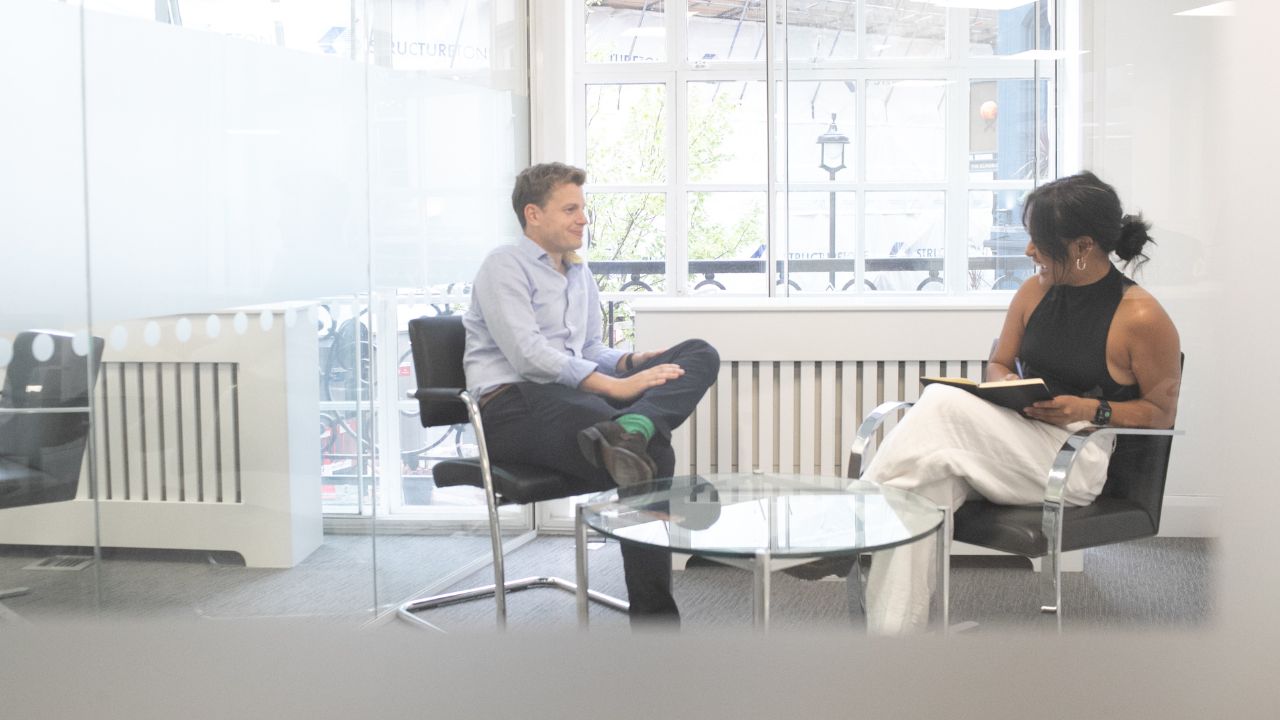
"How many sharks would fit in this room?"
Perhaps not the first question you would expect when interviewing for a Marketing Manager job, but it happens. While you should expect the unexpected - tech companies, especially, have earned a reputation for unusual interview interrogation - such questions are not easily prepared for.
Fortunately, most interviewers will ask a few common questions all aimed at identifying whether you have the right competencies for the job, how you deal with challenges, and whether you’ll fit into the corporate culture. So, while making the right first impression with your outfit and adopting the right body language are crucial, it is how you answer these questions that will really decide whether or not you get the job.
To help you prepare for your next interview, we've put together our guide to answering the seven most common interview questions:
- Tell me about yourself
- Why are you thinking about leaving your job?
- What your biggest strengths?
- What are your biggest weaknesses?
- Tell me about a time you had to deal with a conflict on your team?
- Tell me about a time that you failed
- Where do you see yourself in X years time?
#1 Tell me about yourself
A classic gentle icebreaker. In practice, though what is meant as a disarming opener, is often a nightmare for candidates because it is so frustratingly vague.
Rather than taking the question at face value and telling your entire life-story, use the vagueness of the question to your advantage. In advance, prepare a two-minute ‘elevator pitch’ – the speech that summarises who you are, what you do, and why you have the talent and enthusiasm to help the firm overcome their challenges.
The last point is the most important. The company has a challenge – perhaps their content marketing isn’t converting enough visitors, or their website has a high bounce rate because of its poor design. You, because of your experience and talent, can solve this challenge. Answer this question well, and build crucial rapport with the interviewer by identifying the challenge and addressing why you can solve it in the job.
#2 Why are you thinking about leaving your job / Why did you leave your last job?
Interviewers ask this to see if you’ve been fired or are totally unbearable to work with. Don’t fall into the trap of mentioning conflicts with co-workers, disagreements with management or negative feelings towards your old firm. Instead, focus either on factual ("I’ve just moved cities") or positive reasons ("I’m looking for a new challenge").
If you're going for the latter, make sure to elaborate. You need to be specific. Perhaps you want the challenge of taking a new product to market or building a sophisticated e-commerce platform. State the nature of the challenges you’re after and how this job provides them in a way your previous role did not.
#3 What are your biggest strengths?
Together with #4 this is an interview staple, yet it is rarely answered well. Too often candidates will reply with a list of nice, but meaningless, platitudes: "I’m highly-motivated, ambitious, proactive, dynamic, and an excellent communicator!"
To impress, you need to answer the question with reference to the job description. Most will include a section setting out the skills required to do the job well. Choose one or two of these and tell your interviewer a story that illustrates your proficiency at it.
For example, you might tee-up your response by saying, something like, "My primary strength is that I’m a great written communicator, something I think is best illustrated by the time when I…" and then demonstrate, ideally with evidence, how that skill has helped you to succeed in your career.
#4 What are your biggest weaknesses?
This question, while nearly always asked, is almost never adequately answered. Why? Because naturally no one feels comfortable admitting their weaknesses. The result? Poor attempts to spin positives as negatives: "I’m a perfectionist", "sometimes I work too hard" etc.
Entrepreneur, James Caan, argues answers like these aren’t so poor as to be deal breakers, but that there are better ways to answer. The alternative is to choose a weakness that you have identified in the past and taken steps to mitigate via additional training, for example.
You need to be careful not to describe a weakness as something that is central to performing well in the role. Choose something significant, but peripheral to the job you’re interviewing for. Perhaps you struggle to focus on the more mundane office tasks but have developed ways to manage your productivity, or maybe you dislike delegating because you prefer a specific way of doing things, but you’ve since learned to trust your team and to mentor where appropriate.
What you mustn’t do is proclaim that you are perfect. These answers aren't credible and suggests that you’re, at best, lacking in important skills of self-reflection or, at worst, dishonest.
#5 Tell me about a time you had to deal with conflict on your team?
These "tell me about…" questions are looking for you to respond with a story. We all have experiences that can be told as short stories, but they can be hard to conjure on the spot. The key is to prepare stories covering common scenarios – successes, failures, and conflicts – in advance.
Lily Zhang, an MIT careers adviser, suggests that once you have your stories you should consider how you frame them. For example, say that you tell a story about how you stood up to a Marketing Director, sharing your concerns about a new campaign but to no avail. You then showed the performance data to your boss, and they agreed, belatedly, to scrap the campaign.
While this story is suitable, it can be read several ways by the interviewer. For example, they may infer that you’re not persuasive and a poor communicator. To avoid this, Zhang suggests framing the story with opening and closing statements that emphasise the positive lesson you want the interviewer to take away.
So, you might say, "I learned early in my career that disagreement is healthy, so long as it is backed up by data." Told this way, the interviewer is more likely to focus on your learning, rather than the various ways you could have approached the scenario better.
#6 Tell me about a time that you failed
Just like #5 you’re going to feel uncomfortable answering this question. So why do they ask it? Because reams of business school research shows that where individuals fail to attribute failure, they are far less likely to learn from their mistakes. Interviewers want to know that you’re self-aware, reflective and open to learning.
You should adopt a three-step approach when answering this question:
1) Choose a real failure.
That time you missed a revenue target by a few pounds won’t cut it. Equally, if you’re sitting on a colossal failure in your past, this isn’t the time to highlight it. Choose a story where, because of your action (or inaction) something fairly important went wrong but you dealt with and learned from it.
2) Describe your failure as a story.
Remember to frame it by introducing it as something that you readily accept went wrong, but that you’ve learned a big lesson from. Don’t dwell on describing the failure – set it out factually and move swiftly on to how you dealt with it.
3) Share what you learned.
Explain why you think things went wrong, what you would have done differently with hindsight, and what you’ll do differently in the future.
#7 Where do you see yourself in X years’ time?
This question is a standard closer. Liz Ryan, a careers expert, suggests avoiding the urge to name a position ("I want to be a Chief Marketing Officer") and instead focussing on lessons you want to learn and things you want to experience in your career.
This is also an opportunity to turn the interview into a discussion. For example, you might ask where they see the company in five years or what they perceive the learning and development opportunities to be.
Don't be afraid to ask questions about the business and the job!
Don’t forget that the interview isn’t only about the hiring manager to quizzing you, it’s also your chance to find out more about the company and the role. Be sure to check out our advice on what questions you should be asking at the end of an interview.
Looking for your next digital marketing job?
We are a specialist digital recruitment agency, providing the best recruitment experience you will ever have. Whether you're interested in more interview advice, help with updating your CV or need support with your job search, our specialist recruitment consultants can help. Get in touch for more information about how we can help you secure your next digital marketing job!


